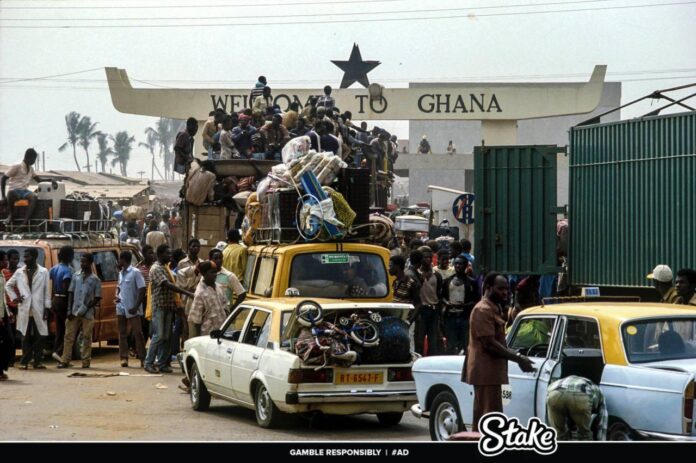In 1983, a controversial and heartbreaking episode in West African history unfolded when Nigeria expelled over 2 million undocumented migrants, a majority of whom were Ghanaians. The mass deportation, which became infamously known as “Ghana Must Go,” left a lasting impact on the region’s diplomatic relations, social fabric, and the lives of countless families.
The roots of the deportation trace back to a series of economic, social, and political factors. By the early 1980s, Nigeria, Africa’s most populous country and largest economy, was experiencing severe economic challenges. Plummeting oil prices, rising unemployment, and an unstable political environment compounded the country’s woes. At the same time, Nigeria had become a magnet for migrants from neighboring countries in search of better opportunities.
For years, Nigeria had been home to a significant number of migrants, particularly from Ghana, who arrived seeking work in the booming oil sector. However, as the economic crisis deepened, Nigeria’s government began to view these foreign nationals as a threat to local job markets. Political leaders, seeking to appease the growing frustrations of Nigerians struggling with unemployment and dwindling resources, turned to a drastic solution.
In April 1983, General Muhammadu Buhari, Nigeria’s military ruler at the time, issued a decree expelling undocumented migrants from the country. Although the policy was intended to target illegal migrants from several countries, Ghanaians bore the brunt of the mass deportation. In fact, it was estimated that up to 1.5 million Ghanaians were affected by the decree, making them the largest group among the expelled migrants. The Nigerian government claimed that many Ghanaians had overstayed their visas or had entered the country without proper documentation.
The expulsion operation was swift and brutal. Thousands of Ghanaian migrants, many of whom had lived in Nigeria for decades, were given little time to pack their belongings and prepare for departure. In some cases, entire families were forced to leave their homes and businesses behind, often with little more than the clothes on their backs. The mass deportation was carried out under harsh conditions, with many of the expelled migrants walking for days to reach the Ghanaian border. The event not only humiliated those affected but also strained relations between Nigeria and Ghana, two countries that had historically shared strong ties.
The phrase “Ghana Must Go” soon became symbolic of the event, representing the forced departure and the hardships faced by the deported individuals. It was a reminder of the broken promises, lost opportunities, and the bitterness that resulted from the expulsion. In addition, the incident sparked a wave of anti-Ghanaian sentiment in Nigeria, leading to violence and discrimination against Ghanaian nationals who had been living in Nigeria legally.
In Ghana, the impact of the deportation was also deeply felt. The sudden influx of returnees overwhelmed the country’s resources, and many deportees struggled to reintegrate into Ghanaian society.
A country already dealing with economic challenges was now tasked with accommodating an influx of people who had spent years away from home.
Many deported Ghanaians had built businesses and lives in Nigeria, and returning to Ghana was a painful and difficult process.
The “Ghana Must Go” event also served as a cautionary tale about the complexities of migration, the volatility of political and economic climates, and the need for international cooperation on the issue. The episode highlighted the precarious nature of migrant life, especially for those who find themselves caught in the crossfire of national policies that disregard human rights.
Today, “Ghana Must Go” stands as a reminder of a painful chapter in the history of West Africa. It serves as a poignant symbol of the challenges faced by migrants across the continent, and the long-lasting impact of mass deportation on the lives of individuals and nations alike.
While relations between Nigeria and Ghana have since improved, the scars of that period continue to shape the discourse on migration, border policies, and the future of regional integration in Africa.




